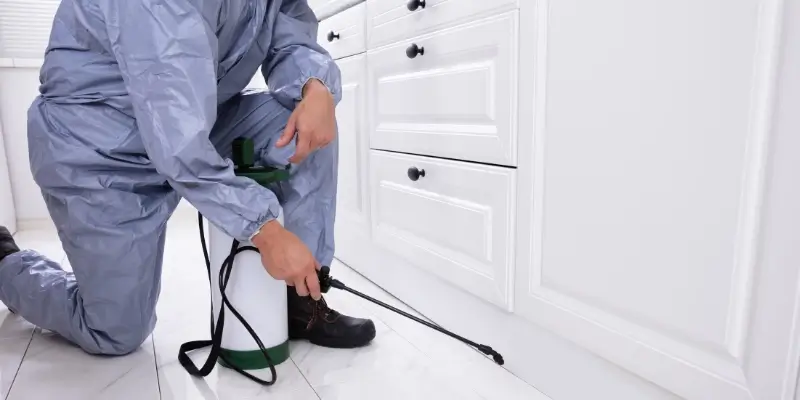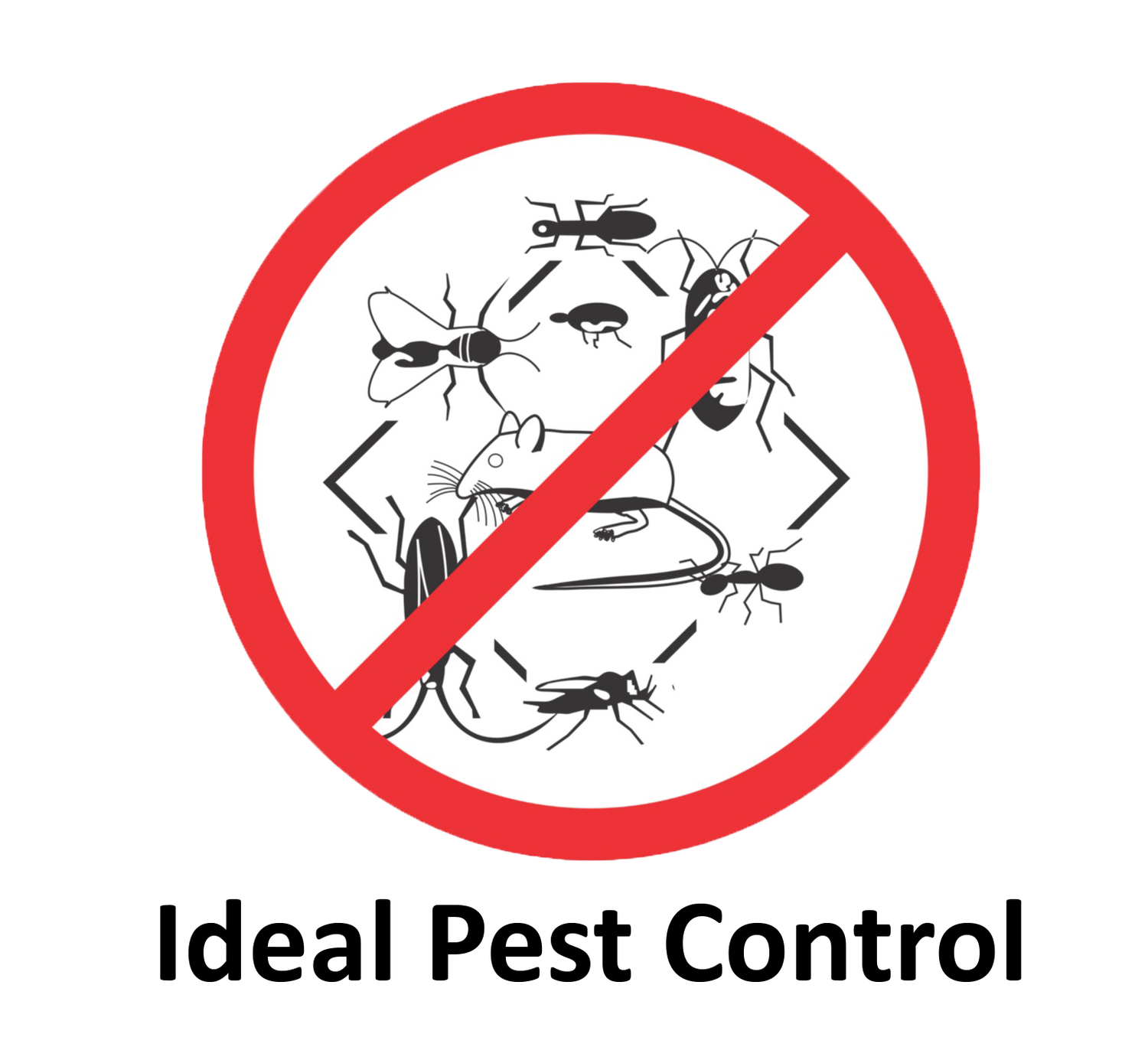Safe and Trustworthy Pest Control for Lasting Defense
Efficient pest management needs a diverse strategy that stabilizes environmental stability with the demand for reliable insect reductions. The subtleties of these methods may not be instantly clear, motivating a better assessment of the practices that can lead to sustainable parasite control results.
Understanding Insect Control Approaches
Bug control encompasses a range of techniques intended at managing and eliminating unwanted insects and rats that can threaten both health and property. Comprehending these approaches is critical for efficient insect administration.
The key classifications of insect control methods consist of mechanical, organic, and chemical techniques. Mechanical approaches involve physical barriers and catches to avoid bug entry and capture unwanted varieties. As an example, utilizing displays on windows or employing sticky traps can dramatically minimize pest populaces without presenting damaging substances.

Chemical bug control is commonly one of the most acknowledged approach, using pesticides to remove pests. These chemicals can be reliable but must be used with caution to avoid damaging effects on non-target varieties and the environment.
Advantages of Eco-Friendly Solutions
How can environment-friendly remedies transform pest control methods? The adoption of environmentally friendly pest control techniques uses various benefits, dramatically boosting the efficiency and safety of bug management (exterminator coquitlam). Firstly, these options use natural ingredients, reducing the dependence on unsafe chemicals that can present threats to human wellness and the atmosphere. This change not just protects animals and households yet also decreases the capacity for dirt and water contamination.

Another benefit is the favorable influence on regional biodiversity. Green options are made to target particular parasites while preserving valuable bugs and wildlife, promoting a well balanced ecosystem. This technique aligns with the growing consumer need for sustainable practices, boosting the track record of pest control carriers.
Integrated Parasite Monitoring Strategies
The execution of environment-friendly remedies naturally brings about the adoption of Integrated Bug Management (IPM) techniques, which better boost insect control efficacy. IPM is an alternative technique that incorporates multiple techniques to take care of insect populations while minimizing ecological influence. This method stresses using biological, cultural, mechanical, and chemical controls, ensuring a sustainable and well balanced technique of parasite administration.
One basic aspect of IPM is the detailed assessment of parasite task and ecological problems. By keeping track of insect populaces and recognizing their life cycles, experts can implement targeted interventions that interrupt the insect's environment or lifecycle, lowering reliance on chemical pesticides. Furthermore, cultural techniques such as plant rotation and environment adjustment can substantially diminish pest establishment and recreation.
One more crucial element is using biological control representatives, such as helpful pests or microorganisms, which can normally subdue insect populaces. When chemical applications are needed, IPM prioritizes the usage of low-risk chemicals and applies them uniquely, decreasing exposure to non-target microorganisms and humans.
Incorporating IPM techniques not only boosts pest control efficiency but additionally promotes a much safer community, aligning with the expanding need for lasting methods in pest administration.
Safe Practices for House Owners
Recognizing the relevance of safe methods in parasite control can equip homeowners to efficiently handle insect problems while securing their wellness and the atmosphere. Implementing preventative actions and non-toxic techniques is crucial in minimizing direct exposure to hazardous chemicals.
Homeowners need to initially examine their atmosphere for problems that attract bugs, such as standing clutter, food, and water waste. Regularly cleaning and sealing access factors can deter parasites from getting into the home. Using all-natural deterrents, such as important oils or diatomaceous earth, can provide efficient alternatives to chemical pesticides.
When chemical treatments are necessary, house owners should opt for items that are specifically labeled as risk-free for property usage. It is important to follow application standards diligently to stay clear of too much exposure. Furthermore, making use of targeted treatments in locations where parasites are recognized, rather than blanket splashing, can dramatically decrease chemical use.
Finally, maintaining open interaction with parasite control specialists is vital. Home owners need to ask about the safety of items used and demand environmentally friendly alternatives whenever feasible. By adopting these secure methods, homeowners can produce a healthier living setting while effectively handling parasite concerns.

Tips for Long-Term Security
Establishing an insect monitoring technique that emphasizes long-term protection can significantly enhance the efficiency of the risk-free methods formerly gone over. To achieve this, house owners need to apply normal inspections of their residential or commercial property, concentrating on concealed areas such as attic rooms, basements, and crawl spaces. Early discovery of bug activity is essential in preventing infestations from taking hold.
Furthermore, keeping a tidy setting is essential. This includes correct food storage, promptly cleansing spills, and routinely taking care of garbage. These practices reduce attractants that attract bugs right into the find this home. Furthermore, sealing access points, such as cracks around home windows and doors, can successfully block potential parasite gain access to.
Landscaping should also be taken into consideration; keeping plants trimmed and keeping a range between plant life and the home lessens hiding spots for insects. Utilizing all-natural deterrents, such as crucial oils or diatomaceous planet, can additionally dissuade infestations without turning to extreme chemicals.
Last but not least, collaborating with an expert pest control solution for regular examinations can offer an added layer of protection. These experts can use tailored referrals and progressed therapies, making sure that your home official site remains shielded versus insects in the long-term.
Conclusion
Finally, trustworthy and secure pest control needs a complex method that emphasizes environmentally friendly approaches and integrated insect administration. By implementing natural deterrents, performing normal examinations, and maintaining appropriate hygiene, residential or commercial property proprietors can considerably lower pest populations while shielding beneficial bugs and the atmosphere. Partnership with expert parasite control solutions enhances the effectiveness of these techniques, making sure customized solutions that give lasting protection and assurance versus future problems.
Efficient parasite management requires a complex strategy that stabilizes ecological stability with the demand for effective bug suppression. The adoption of environmentally friendly parasite control approaches supplies countless advantages, substantially enhancing the effectiveness and safety of pest monitoring.The application of environmentally friendly services naturally leads to the fostering of Integrated web link Bug Administration (IPM) techniques, which better boost bug control efficacy. exterminator coquitlam. By checking bug populaces and identifying their life cycles, specialists can execute targeted interventions that interfere with the parasite's habitat or lifecycle, reducing dependence on chemical pesticides.In final thought, secure and trustworthy pest control needs a multifaceted strategy that highlights green approaches and incorporated pest administration